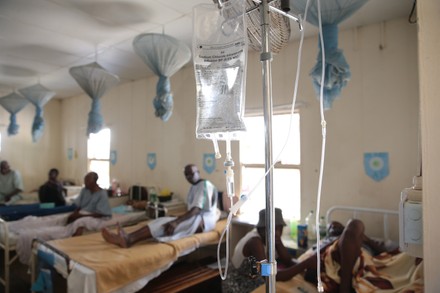Withdrawal of donor funding a threat to Zimbabwe’s HIV financing; Health Ministry now seeks supplementary budget
Permanant Secretary in the Ministry of Health and Child Care Dr Aspect Maunganidze says the United States’ withdrawal of funding for Zimbabwe’s healthcare sector, coupled with general donor fatigue, has disrupted the country’s HIV financing and programming.
The Trump administration withdrew funding by at least 85% worldwide earlier this year, severely affecting several poor countries, including Zimbabwe.
Giving oral evidence to the Joint Portfolio Committee on Health and Child Care and the Thematic Committee on HIV and AIDS on HIV financing this Tuesday, Maunganidze said the reduced financing due to donor withdrawal had forced the ministry to re-strategise its funding mechanisms.
He told the committees that the ministry had written to Treasury seeking a supplementary budget to close the funding gap created by the US withdrawal and donor fatigue, in order to strengthen the national HIV response.
“The main challenges in HIV and AIDS funding have always included some funding gaps, regardless of donor support or otherwise. Even ensuring that our strategic plan is truly a national HIV strategic plan that is sustainable, particularly in HIV prevention and related initiatives, has been difficult.
“However, the major threat right now is the withdrawal of donor funding.
“What we have observed globally is a general fatigue in donor funding. Whether it comes through the UN, the Global Fund, or other partners, this fatigue is concerning. There are now many competing global health and humanitarian challenges that have emerged in recent years, not just HIV and AIDS.
“This has unfortunately been compounded by the abrupt withdrawal of funding from one of our key donors—the US government,” Maunganidze said.
He explained that the US had been supporting HIV funding through PEPFAR (President’s Emergency Plan for AIDS Relief) and by contributing significantly to the Global Fund.
“The US government contributes 30% of the Global Fund, which supports HIV, TB, and malaria interventions.
“Through PEPFAR and US implementing agencies like the CDC and the President’s Malaria Initiative, this sudden funding withdrawal has had significant consequences for our healthcare services,” he said.
Maunganidze also outlined Zimbabwe’s domestic and international HIV financing models.
“Domestically, we rely on the national budget allocation and the Health Levy (a 5% tax on mobile data and airtime), which supports various programs, including HIV.
“We’ve also introduced specific taxes through the main budget—like the recently implemented Health Sugar Levy—to help strengthen our HIV response,” he said.
On the international front, Maunganidze cited continued support from the Global Fund, the Health Development Fund, and donors such as the Bill and Melinda Gates Foundation.
He added that the ministry also works with the United Nations and follows UNAIDS’ Fast-Track commitments for 2020 and 2026, which aim to strengthen HIV responses in the country.
“In general, partners contribute between 50% and 65% of funding for our HIV response.
“When looking at the overall health budget, development partners have contributed between 35% and 45%, and in some years, even beyond 50%,” he noted.
Following the US funding withdrawal announced on January 20, 2025, the government responded by announcing on May 15, 2025, intensified efforts to mobilise more domestic resources and laid out a roadmap to strategically boost local HIV drug production.
“I must say we are okay on HIV funding until at least January 20, 2026. The same applies to TB and malaria medicines.
“However, we must continue ensuring that our local revenue streams support a sustained HIV response so that we maintain our gains, particularly on the 95-95-95 UN targets, which we have already achieved.”
Since January, over 5,000 HIV-related deaths have been recorded, raising serious concerns about the government’s need to increase investment in HIV financing and programming.




